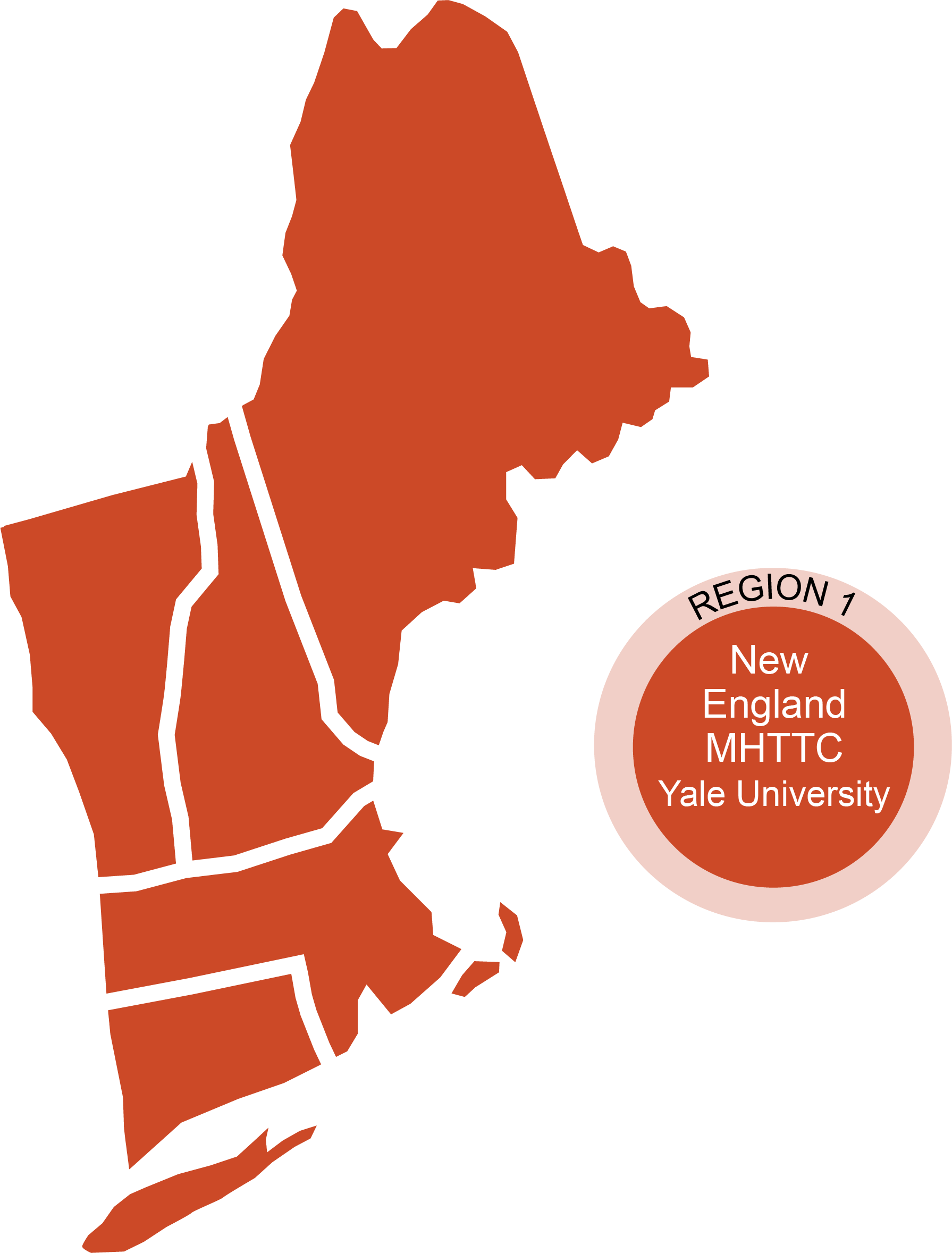Home > MIC Stories: Person-Centered Recovery Planning in Behavioral Health

MIC Stories (MHTTCs Implementing Change) feature technical assistance projects that had a significant impact on practice.
Person-Centered Recovery Planning (PCRP) is an ongoing process of collaboration between an individual and their professional providers and natural supporters. The process supports consumer preferences and results in the co-creation of a recovery-oriented care plan. PCRP is in keeping SAMHSA's 10 Components of Recovery and is increasingly required by fiscal, regulatory, and quality oversight bodies such as managed care organizations, state behavioral health authorities, and public funders (e.g., Centers for Medicare and Medicaid Services). Despite the increasing demand for PCRP and long-standing models of person-centered planning in the developmental disabilities field, there remains little guidance around adapting PCRP to the unique needs and preferences of behavioral health consumers. In particular, there is widespread confusion regarding strategies for maintaining a strengths-based, person-centered approach to collaborative planning while at the same time satisfying a myriad of documentation requirements associated with state regulations and funder expectations. These issues were consistent with the area of focus of the New England MHTTC and a needs assessment with many stakeholders noting training, technical assistance (TA), and implementation support around PCRP to be a high priority.
The New England MHTTC Person-Centered Recovery Planning (PCRP) Learning Collaborative project is a multi-agency learning collaborative to provide intense training, TA, and implementation support around the practice of PCRP. It began with a series of introductory webinars in December 2019 and was scheduled to conclude in December 2020; however, supports will be extended for 3 months due to significant project disruptions caused by the COVID-19 pandemic. Primary faculty are Dr. Janis Tondora of the Yale Program for Recovery and Community Health and Dr. Dan Wartenberg of Newport Mental Health.
Five behavioral health organizations in the New England HHS Region are participating, representing ME, NH, and RI. Agencies vary in size and existing exposure to recovery-oriented practices.
Active participants from each agency vary. Agencies were encouraged to involve 4-6 change team members representing clinical supervisor/team leads, direct support practitioners, quality monitoring representatives, people in recovery/peer supporters, rehabilitation specialists, cultural competence representatives, agency executive leadership, and project-specific personnel (e.g., information technology specialists if an agency was interested in redesigning assessment and planning templates within their Electronic Health Record [her]).
Participating agencies were selected through a formal application process designed to determine whether 1) the learning collaborative program was a fit for the organization’s needs, and 2) the organization could fully commit to the program requirements. Required materials included an on-line application, a letter of support from agency leadership, establishment of a PCRP change team, and evidence of active involvement of people with lived experience of behavioral health concerns.

This learning collaborative focuses on reviewing key indicators of PCRP from both a process and documentation perspective. Participating agencies receive interactive training (online and face-to-face), discussion-based webinars, and individualized TA to support the implementation of PCRP practices. Particular emphasis is placed on how to maintain a strengths-based recovery orientation in collaborative care planning while meeting fiscal and regulatory documentation requirements.
The learning collaborative began with a series of introductory webinars in December 2019 and convened face-to-face in March 2020 for a 2-day intensive skills training in PCRP. Immediately thereafter, planned collaborative activities had to be paused due to the COVID-19 pandemic to allow agencies to focus on the priority of client care and rapid conversion to telehealth. Collaborative activities resumed in the Summer 2020 and have included monthly individualized TA calls to support agency-level PCRP implementation plans and bi-monthly group TA calls to allow for the cross-fertilization of learning and sharing resources among participants.
While training and TA can help staff develop competency around the documentation of PCRP, it is difficult for staff to then demonstrate this competency when they are forced to use assessment and treatment planning templates that are driven by problems, pathology, and a complex work flow designed more to support payment than the person and their recovery and life goals. This lack of alignment is a commonly cited organizational barrier in PCRP change efforts – particularly when assessment and planning templates exist within EHRs that can be costly and labor-intensive to modify. The faculty of the learning collaborative have worked with member agencies through resource sharing and individualized TA to re-design EHR platforms and develop accompanying training tools to support their adoption. Preliminary feedback suggests this has been a particularly practical and valued component of the supports offered in the learning collaborative.
As the first COVID-19 surge eased in New England in mid-2020 and organizations re-opened, there were significant differences in agencies’ ability to rebound and re-engage in the learning collaborative. In general, larger agencies with more resources and infrastructure could get back on track and develop rather ambitious PCRP implementation plans. Smaller organizations or change teams have struggled in comparison and consultants are working with them to develop more modest, feasible change objectives in light of the ongoing pandemic. For example, rather than focusing on agency-wide changes which often necessitate changes in policies, procedures, and workflow, these agencies are focusing more on promoting meaningful change at the service delivery level by enhancing staff and supervisor skills in a variety of person-centered practices.
The project is being evaluated based through data and feedback from monthly individual and group meetings. We have established a thorough mechanism to track and document the implementation process, determinants, strategies, and outcomes.
Among the 5 participating agencies, all have shared learning collaborative materials and tools with agency stakeholders beyond their core change team; the majority have modified organizational policies and procedures and conducted some level of PCRP training with their staff, with two agencies making a significant increased investment in training. Staff indicated that they gained knowledge about PCRP principles. In addition, providers have reported that their clients improve or are more open to treatment as a result of PCRP. We also have preliminary findings of high feasibility and acceptability of the intervention among the staff and clients.
The implementation of a complex recovery-oriented practice such as PCRP requires attention to multiple aspects of the change process including overall agency culture, stakeholder competencies in PCRP, and organizational business practices. This learning collaborative has been an opportunity to demonstrate how these factors come together and we look forward to sharing lessons learned with the broader field.
Group and individualized TA will be extended through March 2021 to accommodate COVID-19 related disruptions. Each agency will be asked to report key lessons learned, with a focus on celebrating accomplishments to parallel the strengths-based nature of the project as a whole.
While the project is still ongoing, two things in particular stand out as lessons learned.
Note: The New England MHTTC published the full report on the impact of learning collaborative activities on the agencies' implementation of person-centered planning practices and can be found here.

The core mission of the New England MHTTC is to use evidence-based means to disseminate evidence-based practices across the region. The region consists of Connecticut, Maine, Massachusetts, New Hampshire, Rhode Island, and Vermont. To ensure the responsiveness of our work, we will actively develop and maintain a network of government officials, policy makers, administrators, and community stakeholders, providers, researchers, youth and adults, and family members from each of the six states to guide New England MHTTC activities.